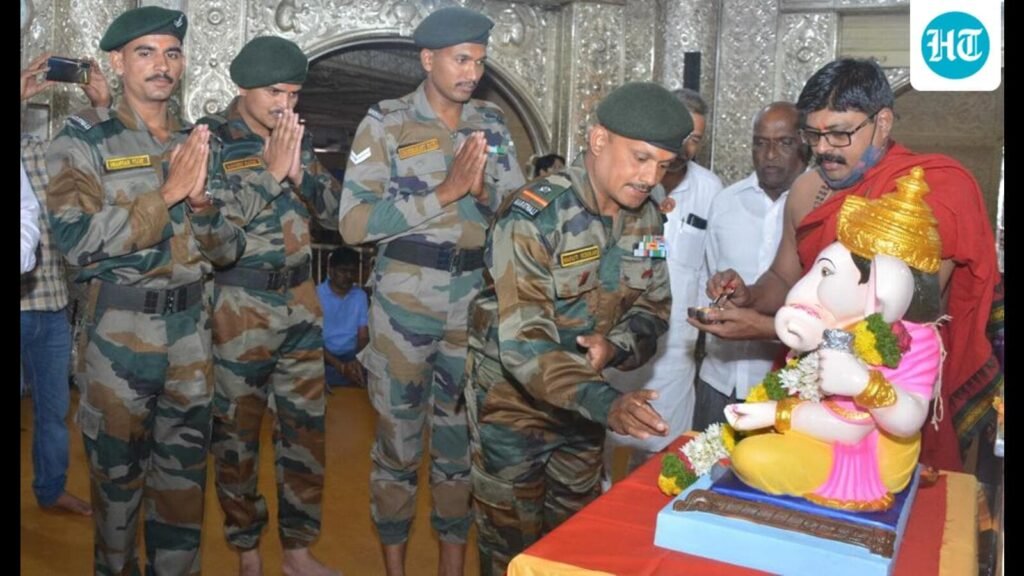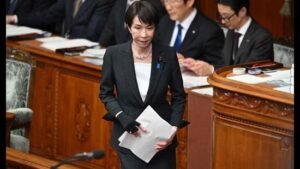
Summoning hundreds of America’s top military leaders from their posts worldwide, US President Donald Trump and secretary of war Pete Hegseth, harangued them in what is being interpreted as an attempt to enforce ideological alignment among the military’s command structure, with a blunt ultimatum that officers who disagree should resign. While such developments in far-off America should not be of concern to us, this sudden and significant departure from long-standing norms in a fellow democracy and its bearing on civil-military relations calls for reflection.

India’s armed forces have, so far, had an excellent record of non-involvement in any kind of activity that can be described as politically motivated. A serviceman is free to cast his vote as he wishes, but any expression of political views or public signs of political affiliation has remained taboo. Thus, no politics, no religious discrimination and no caste, gender or ethnic bias was considered the Indian military’s gold standard credo, and an attribute that has distinguished it from many other national institutions, which have forfeited the public’s faith and confidence.
Of late however, the secular and non-discriminatory ethos of the military appears to be under stress. While the Indian Army has inherited a tradition of accommodating and respecting diverse religious ceremonials, especially those linked to the faith of its troops, now, there appears to be a steady push towards public display of a politically-motivated religious-cultural identity. Senior military leaders are increasingly visible at places of worship or pilgrimage and are seen participating in religious ceremonies. This is unexceptionable, since every individual is free to pray at the temples of his gods and observe the rituals of his faith. However, military ethos and propriety have traditionally required that religious worship remains a private and personal activity, undertaken when off duty, and without involving service facilities or personnel.
What military veterans find jarring is that such appearances are duily photographed and publicized in the media, and that officers are often seen in uniform on such occasions, in the company of political functionaries. Thus, the time-honored regulations barring the display of religious marks, signs and symbols while wearing the uniform are frequently being violated. This is accompanied by increasing references to mythological and religious themes — often painstakingly contrived — in public briefings and utterances and also while assigning code-names to military operations and institutional symbols. All in the name of a “long-overdue process of de-colonisation”.
Such tendencies lend themselves to an interpretation that the armed forces are either initiating the process or allowing themselves to be progressively pushed into alignment with a specific religious-cultural. agenda. This would not only be violative of the oath of allegiance that every serviceman swears to our secular Constitution, but would also send a message of alienation and exclusion to the personnel of diverse faiths, who continue to serve in uniform in significant numbers.
Of more serious concern should be the distinct possibility that these acts, rather than being signs of soldierly piousness, are indicative of eagerness to please the political establishment. In a region full of militaries with political aspirations, the Indian armed forces have, fortunately, remained completely untainted by political stain or ambition so far. Any signs of straying from this path of rectitude should be a cause of worry to the political establishment because it could undermine India’s national security.
India’s tradition of an apolitical military is something which we must firmly adhere to for reasons critical not only to the nation’s security but also its core interests.
First, if the military were to align with a specific political party, its leadership’s decision-making could be compromised. Second, governments are bound to change, sooner or later. Therefore, military officers who ingratiate themselves with one political party could be purged when its opponents come to power, resulting in organizational turmoil. Third, political or religious polarization would create deep fissures within the officer corps to start with, and eventually infect the rank and file. Last, the military commands respect from the public for its non-partisan approach, but if the people begin to perceive it as another rent-seeking organization, swayed by politics or religion, that respect will vanish.
In earlier times, a prime cause of concern for soldiers used to be the indifference of the Indian politician towards national security issues, manifested in the consistent failure of parliamentarians to take up defence-related issues. Against this backdrop, the September 2016 cross-border raids on Pakistani terrorist camps constituted a salutary paradigm shift. This was confirmed by the February 2019 air-strike on Balakot and now Operation Sindoor, launched as retribution for a cross-border terrorist attack. These actions marked a welcome departure from the long-standing policy of “strategic restraint” and called Pakistan’s nuclear bluff. Insofar as they marked the end of political indifference towards national security, these developments have, rightly, received a warm welcome.
However, this newfound political interest in security issues has also brought with it some complexities. Not only have politicians started taking credit for ordering military operations — which is their prerogative — but also for their successful execution. When done for political advantage, this prompts rival parties to retaliate by questioning the government’s claims. In such a cross-fire, the military leadership, unfortunately, finds itself on the horns of a dilemma. If they do not defend themselves, their credibility is cast in doubt, and if they do, they risk accusations of political partisanship.
Finally, we must remember that the defining characteristic that elevates India’s military above its regional peers is its unwavering allegiance to the Constitution. This sets it apart from China’s People’s Liberation Army, which swears loyalty to the Communist Party, and Pakistan’s military, which claims to be “defenders of Islam”. Allowing political or religious polarization to seep into our armed forces would severely erode morale, cohesion, and combat efficiency, with grave consequences for the nation’s security. Therefore, insulating our military from such contagion is an issue that demands deep and urgent reflection by both our political and military leadership.
Admiral Arun Prakash (retd) is a former chief of the naval staff. The views expressed are personal






